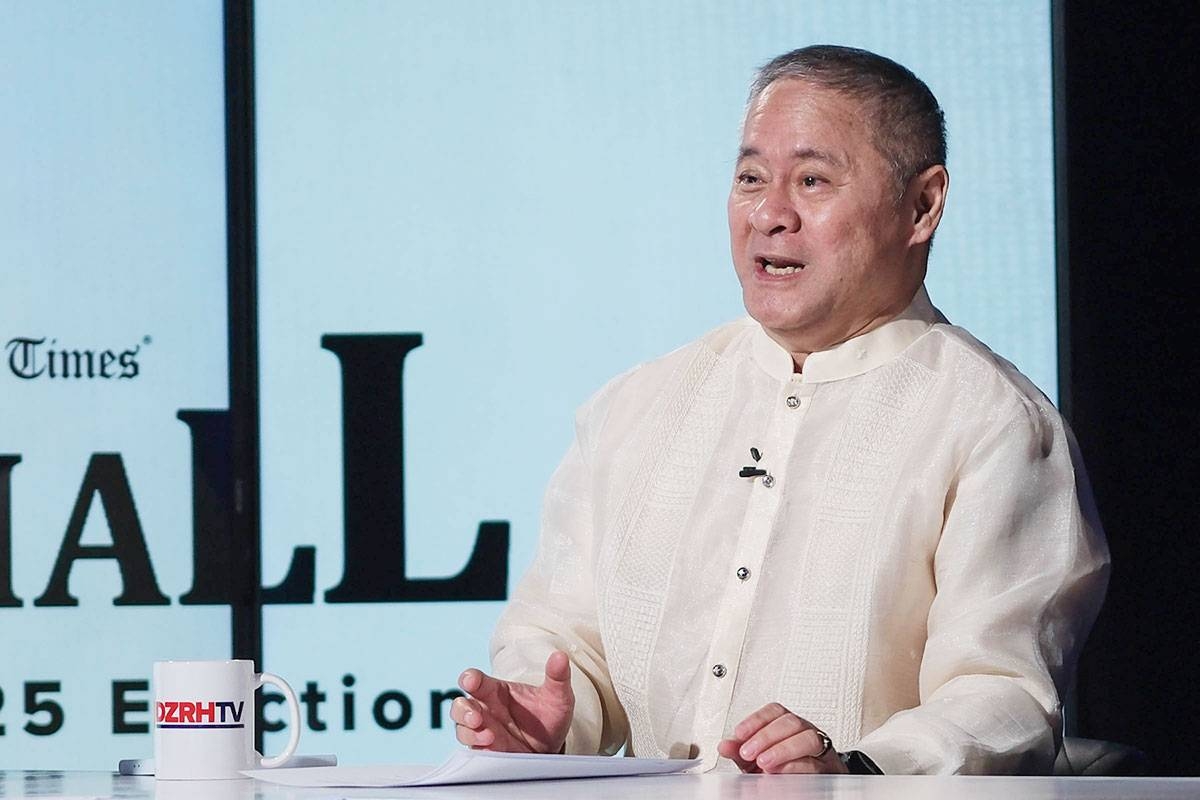Leaders must focus on science literacy – analyst
POLITICAL analyst and professor Antonio Contreras emphasized the critical role of science literacy in addressing pressing national issues, particularly climate change during the "Town Hall: Preview of the 2025 Elections" hosted by The Manila Times in collaboration with DZRH. Contreras, from the University of the Philippines Los Baños School of Environmental Science and Management, highlighted a common misconception among many Filipinos regarding climate-related disasters such as typhoons and floods. He said while flood control measures are often criticized for being inadequate, the real issue lies in the intensification of typhoons due to climate change — a fact often overlooked due to a lack of understanding. "Infrastructure alone is no longer sufficient to address the challenges posed by increasingly powerful typhoons," Contreras said. "We should move beyond merely building flood control systems. Instead, we need to adopt nature-based solutions and adapt to the changing climate." Contreras lamented the low level of science literacy among Filipinos, which hampers effective climate change adaptation. Despite widespread awareness of climate change, many still attribute natural disasters to divine will rather than understanding their scientific causes. "While people experience the hardships brought about by typhoons and are aware of climate change, when asked about it, many respond by saying it's an act of God that we should simply pray about," Contreras said. "This reflects a lack of knowledge about how to address these challenges scientifically." He added that raising science literacy should be a national priority. The focus should not only be on making people aware of climate change but also empowering them to take informed actions, he said. Contreras called on voters to scrutinize the science literacy of political candidates, particularly those running for Senate or Congress. He argued that leaders should prioritize popularizing science and increasing public understanding of critical issues such as climate change. Contreras emphasized that future leaders must focus on climate change adaptation rather than mitigation, given the accelerating impact of global warming. He urged voters to seek candidates who possess not only scientific knowledge but also a commitment to implementing adaptive strategies. He underscored the need for a paradigm shift in how Filipinos approach climate change and other scientific challenges, and that it is no longer enough to rely on traditional infrastructure projects.

POLITICAL analyst and professor Antonio Contreras emphasized the critical role of science literacy in addressing pressing national issues, particularly climate change during the "Town Hall: Preview of the 2025 Elections" hosted by The Manila Times in collaboration with DZRH.
Contreras, from the University of the Philippines Los Baños School of Environmental Science and Management, highlighted a common misconception among many Filipinos regarding climate-related disasters such as typhoons and floods. He said while flood control measures are often criticized for being inadequate, the real issue lies in the intensification of typhoons due to climate change — a fact often overlooked due to a lack of understanding.
"Infrastructure alone is no longer sufficient to address the challenges posed by increasingly powerful typhoons," Contreras said. "We should move beyond merely building flood control systems. Instead, we need to adopt nature-based solutions and adapt to the changing climate."
Contreras lamented the low level of science literacy among Filipinos, which hampers effective climate change adaptation. Despite widespread awareness of climate change, many still attribute natural disasters to divine will rather than understanding their scientific causes.
"While people experience the hardships brought about by typhoons and are aware of climate change, when asked about it, many respond by saying it's an act of God that we should simply pray about," Contreras said. "This reflects a lack of knowledge about how to address these challenges scientifically."
He added that raising science literacy should be a national priority. The focus should not only be on making people aware of climate change but also empowering them to take informed actions, he said.
Contreras called on voters to scrutinize the science literacy of political candidates, particularly those running for Senate or Congress. He argued that leaders should prioritize popularizing science and increasing public understanding of critical issues such as climate change.
Contreras emphasized that future leaders must focus on climate change adaptation rather than mitigation, given the accelerating impact of global warming. He urged voters to seek candidates who possess not only scientific knowledge but also a commitment to implementing adaptive strategies.
He underscored the need for a paradigm shift in how Filipinos approach climate change and other scientific challenges, and that it is no longer enough to rely on traditional infrastructure projects.
















